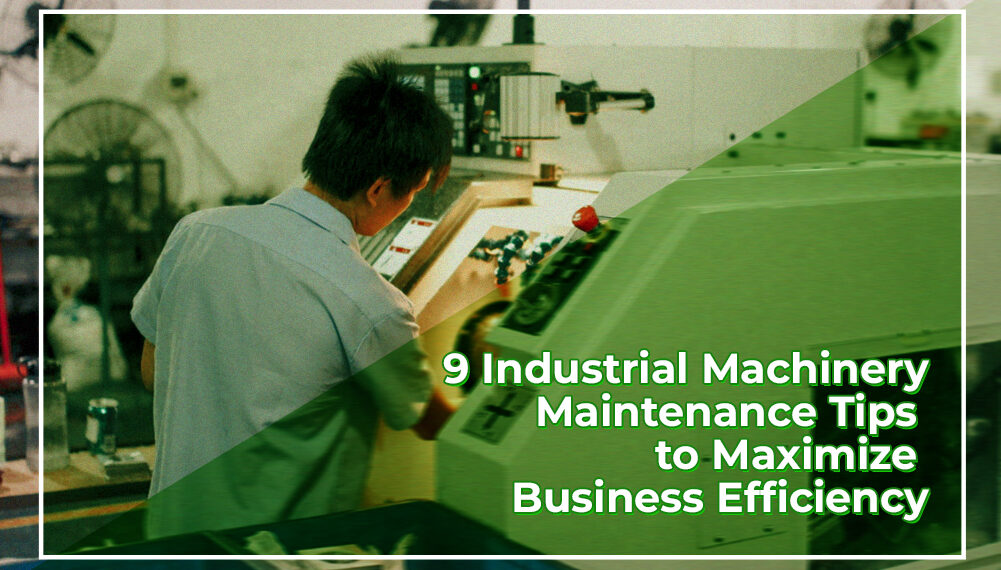Manufacturing and production industries rely heavily on industrial machines. This equipment is the backbone of their operations. Proper and regular maintenance is crucial to ensure that production will be at its peak. Industrial machinery maintenance will minimize business downtime and prevent costly repairs.
If you aim to be on top of your operations, here are (X) essential maintenance practices you must follow.
9 Industrial Machinery Maintenance Tips
1. Stick to a Regular Preventive Maintenance Schedule
Unexpected breakdowns happen when preventive and regular machinery maintenance is not done. Be thorough in your preventive measures. Create a detailed maintenance schedule to ensure that the following activities are done:
- Routine inspections
- Lubrication of moving components
- Replacement of worn-out parts
- Calibration and alignment checks
2. Maintain a Clean Machinery
Elements such as dust, dirt, and debris can affect and reduce machine efficiency. and cause the machine to overheat and malfunction. Make it a habit to establish a strict cleaning regimen.
- Keep vents and filters free from debris
- Prevent buildup by keeping surfaces clean
- Clear hard-to-reach areas using compressed air
3. Train Your Staff
Your machine operators and maintenance staff should undergo proper training to ensure correct usage and reduce machine wear and tear. Include the following in your staff training:
- Correct operational procedures
- Early identification of malfunction
- Basic troubleshooting techniques
4. Monitor Performance and Use Diagnostic Tools
Detect machinery maintenance issues by using sensors and diagnostic tools that can detect and prevent issues before they blow up into major problems. Monitoring systems must be implemented to track temperature and vibration levels, energy consumption, and production output.
5. Invest in High-Quality Replacement Parts
Genuine and high-quality spare parts may be more expensive but they come with cost-effective benefits. They contribute to the longevity of industrial machines. Inferior parts may wear out faster and cause further damage, leading to expensive repairs.
6. Schedule the Lubrication of Moving Parts
Moving components are prone to excessive wear and tear due to friction. You must lubricate these mechanical parts using the correct lubricants. Reduce stress on equipment by ensuring that lubricants are applied at recommended intervals.
7. Do Not Ignore Issues
You have to address repairs promptly–even the small ones. Ignoring small issues can lead to bigger, costlier repairs that lead to downtime. Address machine repairs once signs of problems arise to prevent operational delays and more expensive cost of repairs or replacement.
8. Document Machinery Maintenance Activities
Keep a detailed record of machinery maintenance activities for the tracking of equipment performance and anticipate future needs. Your machinery maintenance record should include the date and type of maintenance performed, the replaced parts, and the addressed issues.
9. Take Advantage of After-Sales Support
You should not disregard the after-sales support offered by trusted industrial equipment suppliers. It can be a lifesaver for you and your operations. Their support comes with the technical expertise specific to your machine requirements. Through them, you can expect prompt and accurate solutions for the issues that you need to address.
ALSO READ: Types of Industrial Vacuum Sealers that Support Your Operations
Regular industrial machinery maintenance is essential to maximize efficiency, reduce downtime, and extend the lifespan of your equipment. Strict implementation of the above-mentioned tips can enhance business productivity while ensuring that costly repairs are avoided.
To get more insights on high-quality industrial equipment, check out Elixir, a trusted industrial equipment supplier that serves the needs of manufacturers in various industries.

